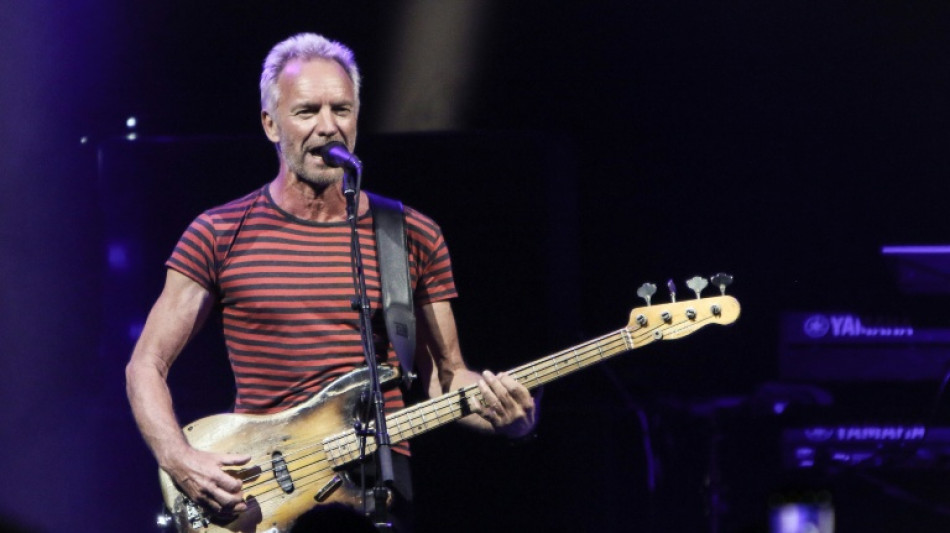
-
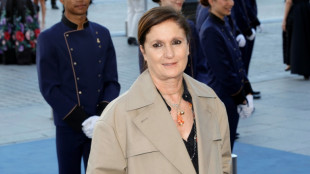 Maria Grazia Chiuri named creative director at Fendi
Maria Grazia Chiuri named creative director at Fendi
-
Hamas forces back on Gaza streets as truce holds

-
 Pakistan-South Africa Test finely poised after spinners run riot
Pakistan-South Africa Test finely poised after spinners run riot
-
French PM faces parliament in political crisis
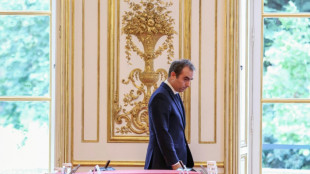
-
 Japan roar back in Tokyo to beat Brazil for first time
Japan roar back in Tokyo to beat Brazil for first time
-
At secluded German airport, researchers tackle tricky drone defence
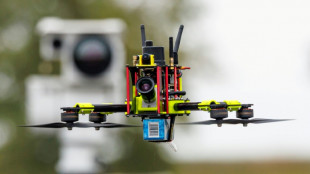
-
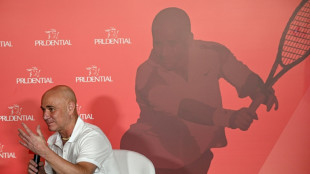 Agassi tips 'incredibly gifted' teenager Tien for the top
Agassi tips 'incredibly gifted' teenager Tien for the top
-
Fallen Austrian property tycoon Benko goes on trial over fraud charges
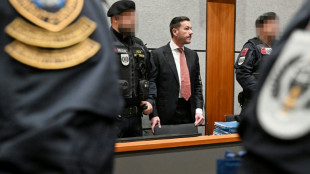
-
 Tens of thousands march in Brussels against austerity plans
Tens of thousands march in Brussels against austerity plans
-
China sanctions five US units of South Korean ship giant Hanwha

-
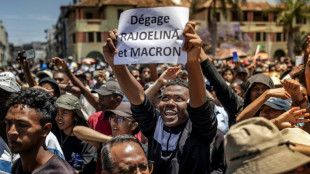 Madagascar president hangs on to power as thousands protest
Madagascar president hangs on to power as thousands protest
-
Barca's Lewandowski set to miss Clasico with hamstring injury

-
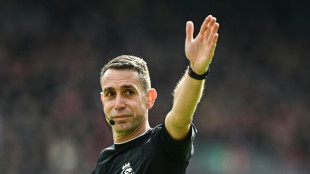 Ex-Premier League referee Coote admits making indecent image of child
Ex-Premier League referee Coote admits making indecent image of child
-
Flights cancelled as Belgium hit by national strike

-
 Harmer's double strike has Pakistan 36-2, lead South Africa by 145
Harmer's double strike has Pakistan 36-2, lead South Africa by 145
-
Google to invest $15 bn in India, build largest AI hub outside US
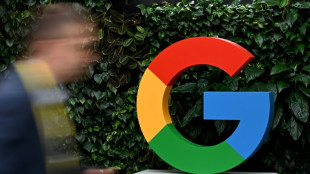
-
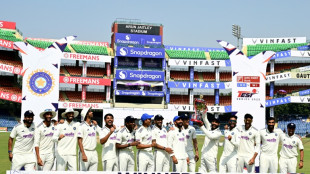 Gill wins first series as India captain with 2-0 West Indies sweep
Gill wins first series as India captain with 2-0 West Indies sweep
-
Monetochka: voice of resistance and hope for anti-Putin Russians

-
 AI content proliferates in Hungary ahead of next year's elections
AI content proliferates in Hungary ahead of next year's elections
-
Guinea circus school offers a springboard for disadvantaged youth
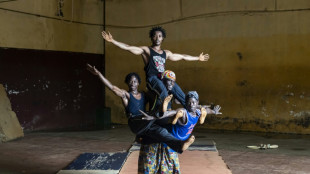
-
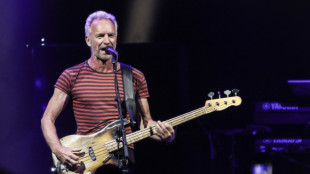 Sting finds fractured modern music scene 'quite odd'
Sting finds fractured modern music scene 'quite odd'
-
South Africa dismissed for 269 in reply to Pakistan's 378
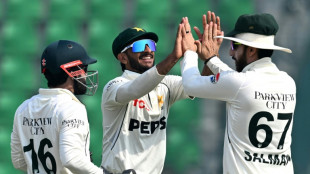
-
 Rahul hits half-century as India beat West Indies to sweep series
Rahul hits half-century as India beat West Indies to sweep series
-
Trump tariffs on timber, furniture take effect
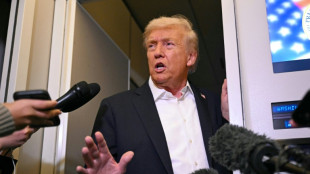
-
 Honduras beat Haiti 3-0 to top World Cup qualifying group
Honduras beat Haiti 3-0 to top World Cup qualifying group
-
Falcons beat Bills while Bears edge Commanders in NFL

-
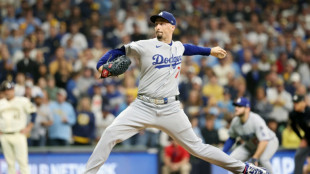 Dodgers edge Brewers, Mariners rout Jays in MLB playoffs
Dodgers edge Brewers, Mariners rout Jays in MLB playoffs
-
Purrno Noir? New Zealand company sells non-alcoholic wine for pets

-
 US threats cast doubt on shipping emissions deal
US threats cast doubt on shipping emissions deal
-
North Korean refugees long for family behind impenetrable border
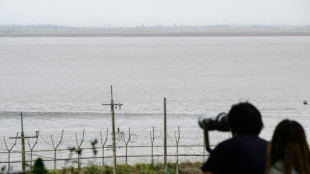
-
 Asian stocks pare tariff-led losses, Tokyo hit by political turmoil
Asian stocks pare tariff-led losses, Tokyo hit by political turmoil
-
Honduras beats Haiti for World Cup qualifying group lead

-
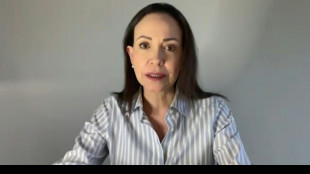 Venezuelan Nobel winner says Maduro will leave power 'with or without' talks
Venezuelan Nobel winner says Maduro will leave power 'with or without' talks
-
After uprising, Nepal's Gen Z rush to register to vote
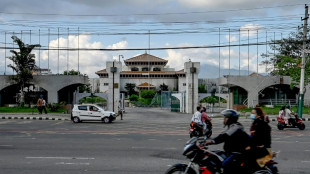
-
 SpaceX launches Starship megarocket on successful test flight
SpaceX launches Starship megarocket on successful test flight
-
SpaceX's launches Starship megarocket on successful test flight

-
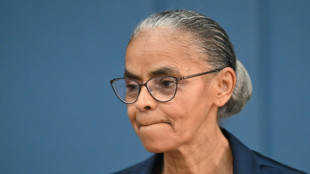 Four Brazilians to watch at COP30
Four Brazilians to watch at COP30
-
Brazil's climate wins ahead of COP30

-
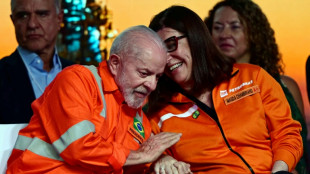 Black gold, green promises: Brazil's climate paradox
Black gold, green promises: Brazil's climate paradox
-
Myanmar scam cities booming despite crackdown -- using Musk's Starlink

-
 Australia doctors warn of 'excessive' medical weed prescriptions
Australia doctors warn of 'excessive' medical weed prescriptions
-
Mariners rout Blue Jays to seize 2-0 lead in MLB playoffs
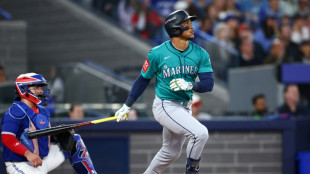
-
 At least 64 dead, 65 missing in Mexico floods
At least 64 dead, 65 missing in Mexico floods
-
Global goal to end deforestation nowhere near being met: experts

-
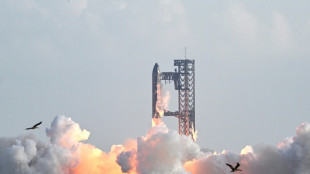 SpaceX launches Starship test flight
SpaceX launches Starship test flight
-
NFL suspends Lions safety Branch for post-game scuffle

-
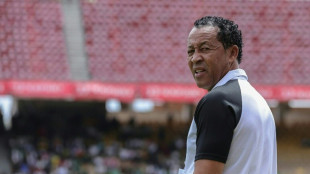 Cape Verde erupts in celebration after first World Cup qualification
Cape Verde erupts in celebration after first World Cup qualification
-
France held in Iceland as Germany and Belgium close on 2026 World Cup

-
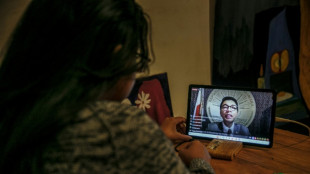 Madagascar's cornered president ignores calls to resign
Madagascar's cornered president ignores calls to resign
-
MLB Padres manager Shildt retires over job's 'severe toll'
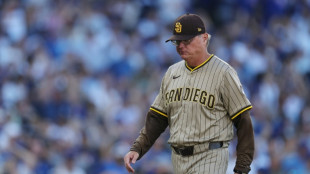

Sting finds fractured modern music scene 'quite odd'
British singer-songwriting legend Sting finds the multiple genres and streaming platforms of the modern music scene "quite odd", but still believes in the power of song to unite people.
In an interview with AFP, the 74-year-old with 17 Grammy Awards and sales of over 100 million albums also spoke about his worries about Artificial Intelligence (AI) as a tool for repression, as well as politicians "whose idea is to separate us all".
The former frontman of The Police was speaking in Paris ahead of the French debut of his partly biographical musical "The Last Ship", which is set in his hometown of Wallsend in northeast England.
It tells the story of the decline of shipbuilding in Wallsend's naval yards on the river Tyne and is intended as a tribute to the working class area that Sting left to pursue his music career.
- Why did you got back to your roots for this show? -
My entire life has been about escaping from what was offered to me. At a certain point, I realised that what I was given as a child was very valuable: a community, a family, a town with a purpose, and that had been taken away.
My way of repaying the debt to my community was to tell a story of an industry that was shut down by the government, and the betrayal, but also to weave in a love story.
I also think it's about many universal problems we face in society. Many communities are losing work because of technology, AI, and so I think it's highly relevant to what's going on politically.
It's an act of resistance for people, and I think we need to resist what's happening. So the play is a kind of political statement.
- Can music and art be a form of resistance? -
I think art is a machine for empathy, where we can see the world through other people's eyes, you can step into someone else's shoes and see their point of view. That is very valuable because there are politicians in the world at the moment whose idea is to separate us all, to say: 'You belong to this club and you can't come in here.'
That separation is not useful for society. It's certainly not good for peace. So I think art has a place in fighting against that trend. This is why these politicians want to get rid of art, and education, and science, and diplomacy. All of these things I personally value, and I think art is my way of contributing to that feeling.
- Why do you place so much value on work? -
Human beings need to do something with their hands. I'm very lucky. I use my hands every day to play the bass. I think human beings need to build things, to make things, to feel dignity, the sense of self.
I'm lucky that I'm just enjoying myself. But it's work. It's hard work. But I would do it for nothing. I would do it for no money. Like a fish has to swim, I have to sing.
- How do you feel about what the music industry has become? -
What I believe now is that there are separate ecologies in music. Whereas before, the number one song in France or England, everybody knew it. Now there are so many genres and so many different streaming systems. It's quite odd.
I'm lucky in that I came up at a time when it was a monoculture. Everybody knows The Police. So I still trade on that. I'm famous because of that. But now you can be successful in a niche and nowhere else. It's not better or worse, it's just different.
- Are you worried about AI and the music industry? -
I'm not afraid, yet. I think it produces an interesting facsimile, but it does not feel emotion. So what can it really give us? It can give us a trick. A mirror. I think there's a way of using it for medical research. But to actually produce art that we'd want to see or listen to, I'm not sure.
I'm worried more politically about what AI can do, the harm, in the wrong hands. Leaders who will use it for increased surveillance of society. It's a very useful tool to keep people observed and controlled. I fear that more than I fear an artistic invasion of my life.
N.Awad--SF-PST

